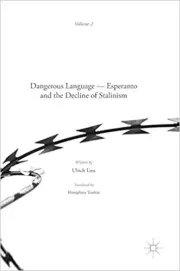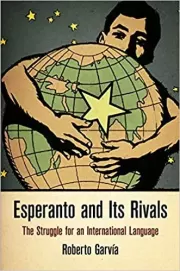Fians , Guilherme - Esperanto Revolutionaries and Geeks: Language Politics, Digital Media and the Making of an International Community
 | Название: | Esperanto Revolutionaries and Geeks: Language Politics, Digital Media and the Making of an International Community |
Автор: | Fians , Guilherme | |
Жанр: | Старинная литература | |
Изадано в серии: | неизвестно | |
Издательство: | неизвестно | |
Год издания: | 2021 | |
ISBN: | неизвестно | |
Отзывы: | Комментировать | |
Рейтинг: | ||
Поделись книгой с друзьями! Помощь сайту: донат на оплату сервера | ||
Краткое содержание книги "Esperanto Revolutionaries and Geeks: Language Politics, Digital Media and the Making of an International Community"
This work is subject to copyright. All rights are solely and exclusively licensed by the Publisher, whether the whole or part of the material is concerned, specifically the rights of translation, reprinting, reuse of illustrations, recitation, broadcasting, reproduction on microfilms or in any other physical way, and transmission or information storage and retrieval, electronic adaptation, computer software, or by similar or dissimilar methodology now known or hereafter developed. The use of general descriptive names, registered names, trademarks, service marks, etc. in this publication does not imply, even in the absence of a specific statement, that such names are exempt from the relevant protective laws and regulations and therefore free for general use. The publisher, the authors and the editors are safe to assume that the advice and information in this book are believed to be true and accurate at the date of publication. Neither the publisher nor the authors or the editors give a warranty, expressed or implied, with respect to the material contained herein or for any errors or omissions that may have been made. The publisher remains neutral with regard to jurisdictional claims in published maps and institutional affiliations.
Читаем онлайн "Esperanto Revolutionaries and Geeks: Language Politics, Digital Media and the Making of an International Community". Главная страница.
- 1
- 2
- 3
- . . .
- последняя (79) »
I Esperanto I Revolution
Revolutionarie and Geeks
Language Polit Media and the InternationalC
Guilherme Fians
ics, Digital Making of an ommunity
palgrave
macmillan
Esperanto Revolutionaries and Geeks
Guilherme Fians
Esperanto Revolutionaries and Geeks
Language Politics, Digital Media and the Making of an International Community
palgrave
macmillan
Guilherme Fians Department of Anthropology University of Brasflia Brasflia, Brazil
ISBN 978-3-030-84229-1 ISBN 978-3-030-84230-7 (eBook)
https://doi.org/10.1007/978-3-030-84230-7
© The Editor(s) (if applicable) and The Author(s), under exclusive licence to Springer Nature Switzerland AG 2021
This work is subject to copyright. All rights are solely and exclusively licensed by the Publisher, whether the whole or part of the material is concerned, specifically the rights of translation, reprinting, reuse of illustrations, recitation, broadcasting, reproduction on microfilms or in any other physical way, and transmission or information storage and retrieval, electronic adaptation, computer software, or by similar or dissimilar methodology now known or hereafter developed. The use of general descriptive names, registered names, trademarks, service marks, etc. in this publication does not imply, even in the absence of a specific statement, that such names are exempt from the relevant protective laws and regulations and therefore free for general use. The publisher, the authors and the editors are safe to assume that the advice and information in this book are believed to be true and accurate at the date of publication. Neither the publisher nor the authors or the editors give a warranty, expressed or implied, with respect to the material contained herein or for any errors or omissions that may have been made. The publisher remains neutral with regard to jurisdictional claims in published maps and institutional affiliations.
Cover illustration: ZEN - Zaneta Razaite/Alamy Stock Photo
This Palgrave Macmillan imprint is published by the registered company Springer Nature Switzerland AG
The registered company address is: Gewerbestrasse 11, 6330 Cham, Switzerland
Esperanto is a language like any other — except when it isnt. (Humphrey Tonkin, 2020, personal communication)
We're not as numerous as we wanted,, but we're more than you can imagine. (Anonymous Esperantist from France, 2017)
For Ngan and Regina, the women ofmy life
Acknowledgements
This book began as a simple quest for answers and never ended. But it never ended for a very good reason: one question constantly led me to others and I frequently encountered people along the way who pushed me further. I started to write it almost on my own. Yet, similarly to Deleuze and Guattari's Thousand Plateaus—but in a much less poetic manner—at the end of it, we were quite a crowd, with a number of people sharing an interest in what I was doing, thinking with me and encouraging my endeavour.
My first thanks go to the Esperanto associations and Esperantists that allowed me to conduct my research with them, in both France and the Netherlands, as well as to those who welcomed me during my stay in France and almost instantly became my friends. Due to my use of pseudonyms, I cannot thank these Esperantists by name, but they know who they are. They taught me almost everything I know about France, digital media and political activism and were responsible for turning Paris into a home for me. I also owe a profound debt to Arandi Gomes Teixeira, who introduced me to Esperanto. Without our conversations, I
X Acknowledgements
might have never learned the language. I was also lucky to meet Fernando Pita, who helped me give shape to this research.
At the University of Manchester—where I began writing this book— I wish to thank those who stayed by my side on all occasions. Firstly, Stef Jansen, who always had encouraging words to share, not only about anthropology, but about life in general. As a careful reader and sharp interlocutor, Stef continuously instigated my curiosity and, above all, made my writing properly inductive. I am also very grateful to my 'mates' Diego Valdivieso, Pedro Silva Rocha Lima, Noah Walker- Crawford and Jeremy Voirol. Through our heated arguments around each other's manuscripts, I learned a lot about anthropology while devel- oping friendships that I hope to carry for life. In addition, I thank Haobin 'Henry' Huang and Shota Kukuladze, who helped me over- come the challenges of being a foreigner in the United Kingdom; to Bill Chapman, who first introduced me to Esperanto speakers in Europe; to the glorious Fallowfield Fellowship and its founding fathers, Sammy Kennedy and Marco Pedroni, for forcing me to take breaks from my research; and to Rosilene and Mario Galindo, who brought some of the flavour of my country of origin to my country of residence. Also, my thanks go to the friends I left in Rio de Janeiro and who always welcomed me back during my years living in the United Kingdom, among which Marcelo Meirelles, Leonardo Soutelo and Jose Maurfcio Grigorovski.
This research was funded by the University of Manchester, the Manchester Jean Monnet Centre of Excellence, the Centre for Research and Documentation on World Language Problems and the Esperantic Studies Foundation. I also wish to thank many others, whose names cannot fit in a page, without whom this book would never have seen the light of day. Among them, Humphrey Tonkin—whose support and encouragement I can never thank enough—Sabine Fiedler, Javier Alcalde, Ulrich Lins, Manuela Burghelea, Bert de Wit, Federico Gobbo, Marcio Goldman, Bruna Franchetto, Douglas Holmes, Christina Toren, Penny Harvey, Matt Candea, Angela Torresan and my all-time colleagues from Universidade Federal do Rio de Janeiro, Museu Nacional and the University of Manchester. More recently, the University of Brasflia took me in, and colleagues in my new academic home were the ones encour- aging and supporting me during my last manuscript-editing rounds. Also, of course, I thank the editorial team of Palgrave Macmillan, particularly Cathy Scott, who promptly welcomed my project and who, together with Manikandan Murthy and two anonymous reviewers, gave me all the support to improve this manuscript.
Last but not least, I owe my deepest gratitude to my family. To Thu Ngan Ngo, who insists on turning me into a better human being and with whom I share everything;
--">- 1
- 2
- 3
- . . .
- последняя (79) »
Книги схожие с «Esperanto Revolutionaries and Geeks: Language Politics, Digital Media and the Making of an International Community» по жанру, серии, автору или названию:
 |
| Ulrich Lins - Esperanto the Dangerous Language Жанр: Старинная литература Год издания: 2017 |



